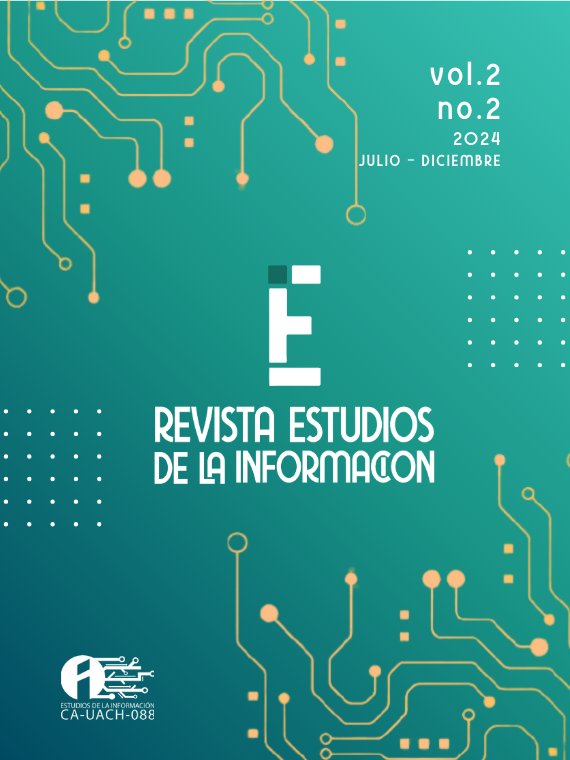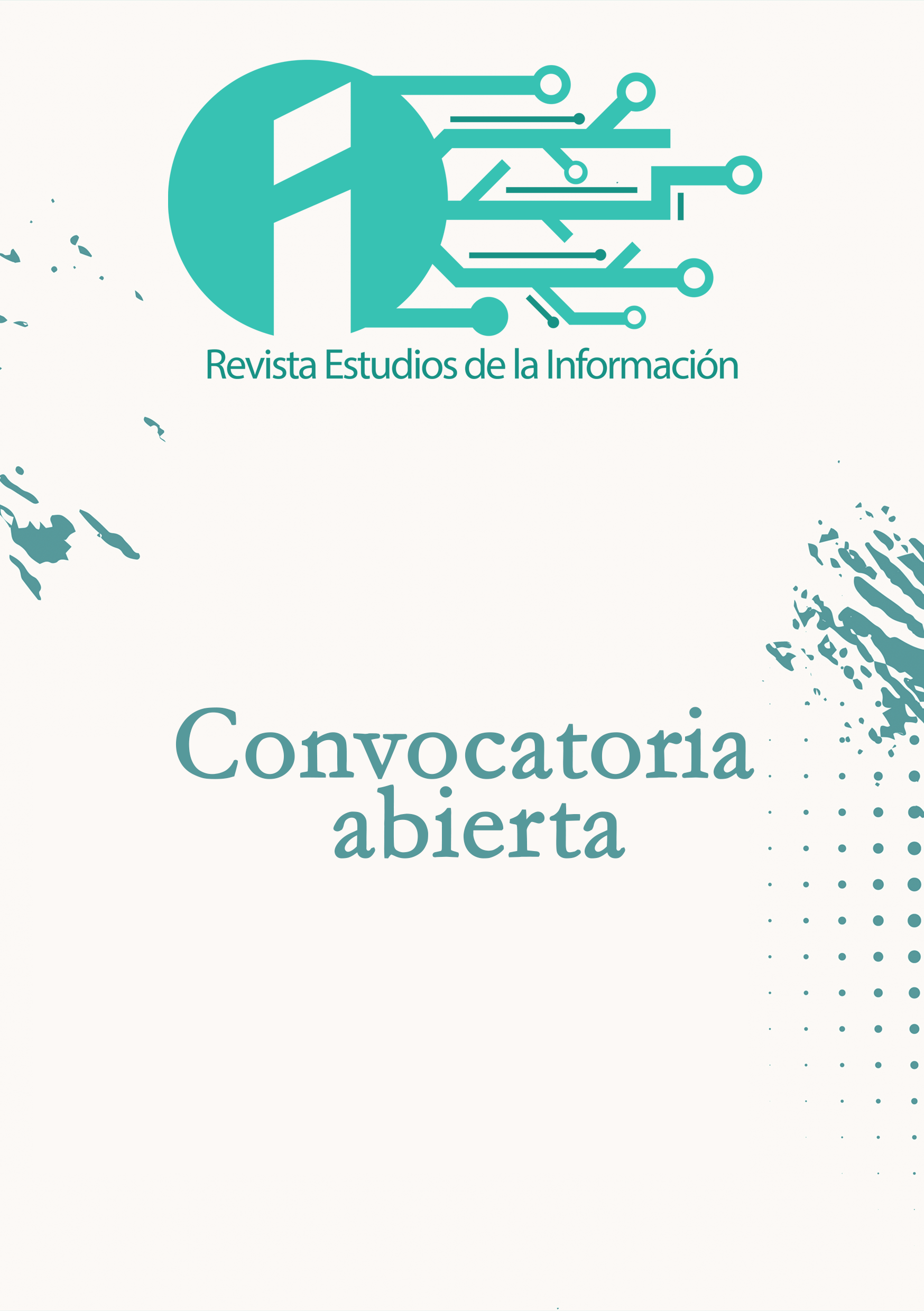Scientific journals editors’ initial revisions and decisions over the manuscripts received
DOI:
https://doi.org/10.54167/rei.v2i2.1785Keywords:
editors, scientific journals, initial screening, peer review, editorial decisions, scientific quality, editorial integrity, editorial standards, scientific publication, manuscript evaluationAbstract
In this article I discuss the initial reviews and decisions that editors of scientific journals must make about the manuscripts they receive. This first review mainly seeks to determine whether the manuscript is within the objectives, scope, and topics of the journal, in addition to meeting acceptable levels of quality and adhering to its standards and policies. Regarding this, I present 15 fundamental aspects that would be included in this initial review and that editors could adopt according to the needs of their journals and integrate them into their editorial policies. As a result of the initial review, if a manuscript does not comply with these fundamental aspects, it is immediately rejected, while its compliance leads to it being accepted to be submitted to the peer review process. After this, the editor will make a decision based on the evaluations and recommendations made by the reviewers, who may suggest its rejection, acceptance, or request the authors to submit a revised revision. Additionally, I present the variants that may occur in this initial review process and list some implications and recommendations for authors, which could help reduce the negative opinions they may receive.
Downloads
References
AIJR Publisher. (2024). Editorial screening process. https://tinyurl.com/2keb9b6m
American Geophysical Union. (2024). Review criteria. https://tinyurl.com/ym43dw8y
Baldwin, M. (2020). Peer review. En C. J. Phillips (Ed.), Encyclopedia of the history of science (pp. 1-15). Carnegie Mellon University. https://doi.org/10.34758/srde-jw27.
Berkeley Library. (2024). How to publish a scientific paper: Editorial process. https://tinyurl.com/44y5kr27
BioMed Central. (2024a). Assessing a new manuscript. https://tinyurl.com/mzjmv8v3
BioMed Central. (2024b). Peer review process: Introduction to peer review. https://tinyurl.com/2p39vyc3
British Medical Journal. (2024). Editor roles & responsibilities. https://tinyurl.com/mr22p9tm
Cormode, G. (2017). How to select peer reviewers: Advice from an expert journal editor. Editage Insights. https://tinyurl.com/4498736z
Council of Science Editors. (2024). 2.1 Editor roles and responsibilities. https://tinyurl.com/427dnf9y
Crawford, D. C. (2023). Addressing rigor in scientific studies. National Institutes of Health. https://tinyurl.com/yeystc9t
Drozdz, J. A., y Ladomery, M. R. (2024). The peer review process: past, present, and future. British Journal of Biomedical Science, 81, 12054. https://doi.org/10.3389/bjbs.2024.12054
Editage. (2024). Decoding journal requirements: How to ensure your manuscript meets standards. https://tinyurl.com/yc3wukyr
Ellis, L. (2025). Peer review. En D. Baker y L. Ellis (Eds.), Encyclopedia of libraries, librarianship, and information science (Vol. 2, pp. 64-71). Elsevier. https://doi.org/10.1016/B978-0-323-95689-5.00228-5
Elsevier. (2015). 5 ways you can ensure your manuscript avoids the desk reject pile. https://tinyurl.com/mr2d7p8z
Elsevier. (2024a). Paper rejection: Common reasons. https://tinyurl.com/4sd25kha
Elsevier. (2024b). Plagiarism detection. https://tinyurl.com/mpf7pv4c
Elsevier. (2024c). The role of an editor. https://www.elsevier.com/editor/role
Faber, J. (2017). Writing scientific manuscripts: most common mistakes. Dental Press Journal of Orthodontics, 22(5), 113-117. https://doi.org/10.1590/2177-6709.22.5.113-117.sar
Freedman, P. (2016). 10 steps to evaluating manuscripts as a peer reviewer. Springer Nature. https://tinyurl.com/2jpe8dev
George, E. (2020). Top peer review challenges for authors and how you can solve them. Editage Insights. https://tinyurl.com/2zcesv4c
Gibson Research Consultancy. (2024). The evolution of peer review in academic research: The scientific journal’s bouncer. https://tinyurl.com/mryhe7yy
Helmenstine, A. (2023). Understanding peer review in science. Science Notes. https://tinyurl.com/yd3rber9
JF Publisher. (2024). The role of editors in the publication of scientific articles. https://tinyurl.com/yc64kya3
Journal of Ethnographic & Qualitative Research. (2024). Initial screening by journal editors. https://tinyurl.com/yrevu6rm
Lauer, M. (2016). Scientific rigor in NIH grant applications. National Institutes of Health. https://tinyurl.com/yc23uyav
Lusher, A. D. (2015). Peer review process, editorial decisions, and manuscript resubmission: A reference for novice researchers. Journal of Osteopathic Medicine, 115(9), 566-569. https://doi.org/10.7556/jaoa.2015.114
Machin-Mastromatteo, J. D. (2024a). La influencia disruptiva de la inteligencia artificial en la academia y la investigación. Biblioteca Universitaria, 27(2).
Machin-Mastromatteo, J. D. (2024b). ¿Qué ganan los evaluadores si realizan una revisión por pares? Revista Estudios de la Información, 2(1), 136-145. https://doi.org/10.54167/rei.v2i1.1585
Majumder, K. (2014). Editorial decision-making: What are the possible outcomes for a manuscript? Editage Insights. https://tinyurl.com/8m3rk8jc
Manuscriptedit. (2024). Understanding the role of editors in scientific publishing. https://tinyurl.com/b2ksx2wx
Moxham, N., y Fyfe, A. (2018). The Royal Society and the prehistory of peer review, 1665-1965. The Historical Journal, 61(4), 863-889. https://doi.org/10.1017/S0018246X17000334
Nahlen, D., y Hancock, E. (2020). Desk decisions. Elsevier Researcher Academy. https://tinyurl.com/36xc5zc6
Pedada, S. (2023). The history of peer review: Enhance the quality of publishing. Mind the Graph by Editage. https://tinyurl.com/2chphr9j
PLOS ONE. (2024). Editorial and peer review process. https://tinyurl.com/2sp4a9sr
Public Library of Science. (2021). Editor’s tips for passing journal checks. https://tinyurl.com/2p8yzd6y
Public Library of Science. (2024a). How to read a manuscript as a peer reviewer. https://tinyurl.com/2vb9u8rb
Public Library of Science. (2024b). Understanding the publishing process. https://tinyurl.com/y8u629ba
Redwood Ink. (2024). How to choose the right journal for your manuscript. https://tinyurl.com/25k6hrfh
Rupp, D. E. (2011). Ethical issues faced by editors and reviewers. Management and Organization Review, 7(3), 481-493. https://doi.org/10.1111/j.1740-8784.2011.00227.x
Sage. (2024). Selecting and inviting reviewers. https://tinyurl.com/7afytxhc
Santos, S., Olijhhoek, T., y Wojturska, R. (2024). Roles and responsibilities. The Open Access Journals Toolkit. https://tinyurl.com/3uvke3ye
Shoosmith, C. (2023). The future of peer review in the 17th Century. The Royal Society. https://tinyurl.com/2844h4h3
Springer Nature. (2024). How to submit a journal article manuscript: What do journal editors want? https://tinyurl.com/bdzr75ps
Springer. (2023a). Evaluating manuscripts. https://tinyurl.com/2s4j8ycp
Springer. (2023b). How to choose a target journal. https://tinyurl.com/5n7h4prp
Teixeira da Silva, J. A., Al-Khatib, A., Katavić, V., & Bornemann-Cimenti, H. (2017). Establishing Sensible and Practical Guidelines for Desk Rejections. Science and Engineering Ethics, 24(4), 1347-1365. https://doi.org/10.1007/s11948-017-9921-3
Wiley. (2024a). Step by step guide to reviewing a manuscript. https://tinyurl.com/3e59zyj3
Wiley. (2024b). The peer review process. https://tinyurl.com/582jch95
Wills, M. (2024). The history of peer review is more interesting than you think. JSTOR Daily. https://tinyurl.com/2p8xk6dz
Wordvice. (2022). Matching your manuscript to a journal’s aim and scope. https://tinyurl.com/32pcrxe8
Downloads
Published
How to Cite
-
Abstract0
-
PDF (Español)0
-
EPUB (Español)0
-
HTML (Español)0







